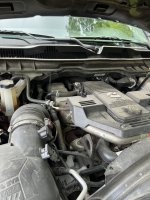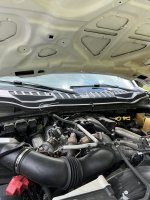4570Man
Super Star Member
- Joined
- Apr 7, 2015
- Messages
- 18,522
- Location
- Crossville, TN
- Tractor
- Kubota M59, Kubota L3800, Grasshopper 428D, Topkick dump truck, 3500 dump truck, 10 ton trailer, more lighter trailers.
Why do you like them better, then?
An inline 6 engine is undeniably better. The vast majority of all heavy duty diesel are inline. An inline motor has a less complicated timing chain setup and an inline motor has crank bearings between every cylinder where V motors have 2 pistons per lobe. An inline motor does typically allow better access in the engine bay for service.

